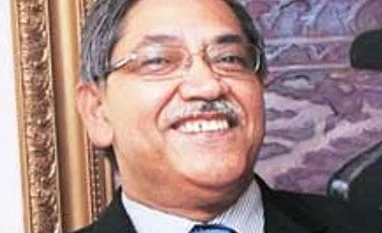The Reserve Bank of India (RBI) has said it might tweak the know-your-customer (KYC) norms in order to strengthen the banking system.
RBI has also decided to undertake a thematic review in 34 banks.
Speaking on the sidelines of the Sustainability Conference organised by YES Bank in Mumbai, RBI’s Deputy Governor K C Chakrabarty said that the regulatory issues around KYC and other business norms were being looked at and, if necessary, RBI will order corrective measures.
Last month, online portal Cobrapost had alleged that employees of ICICI Bank, HDFC Bank and Axis Bank were offering services to convert clients’ black money into white, without the knowledge of the regulator and other bodies.
Chakrabarty added RBI had found no evidence of money laundering, as alleged by Cobrapost. “There is no evidence. There was no transaction.”
Chakrabarty also said the investigation report won’t be made public.
“RBI supervisory investigation is an issue between supervisor and supervised entity,” he said. “That is not for public discussion”.
He reiterated the banking system in India was sound. Chakrabarty, however, admitted to aberrations in the system. He refused to answer the question ona monetary penalty for alleged violations by the three banks.
“If need be, monetary penalty would be imposed,” the deputy governor said.
During his speech at the conference, Chakrabarty said, “The problem is not that of technique or skill, it is a problem of attitude... It is a problem of the corporate philosophy, which needs to be changed and this has to be addressed at the board level, at the enterprise level.”
He added banks, especially private ones, needed to aggressively go after education loans. “Ninety-six per cent of education loans are given by public sector banks and banks need to finance aggressively for educating students to promote sustainability,” said Chakrabarty.
RBI is serious about social and environmental sustainability, Chakrabarty said, pointing to the priority sector guidelines.
“Even where we have given directions, the performance is abysmal, especially by the elite banks,” he added.
RBI has also decided to undertake a thematic review in 34 banks.
Speaking on the sidelines of the Sustainability Conference organised by YES Bank in Mumbai, RBI’s Deputy Governor K C Chakrabarty said that the regulatory issues around KYC and other business norms were being looked at and, if necessary, RBI will order corrective measures.
More From This Section
“At a transactional level, there are some aberrations which (will) always take place and there is a need to look into those issues,” said Chakrabarty.
Last month, online portal Cobrapost had alleged that employees of ICICI Bank, HDFC Bank and Axis Bank were offering services to convert clients’ black money into white, without the knowledge of the regulator and other bodies.
Chakrabarty added RBI had found no evidence of money laundering, as alleged by Cobrapost. “There is no evidence. There was no transaction.”
Chakrabarty also said the investigation report won’t be made public.
“RBI supervisory investigation is an issue between supervisor and supervised entity,” he said. “That is not for public discussion”.
He reiterated the banking system in India was sound. Chakrabarty, however, admitted to aberrations in the system. He refused to answer the question ona monetary penalty for alleged violations by the three banks.
“If need be, monetary penalty would be imposed,” the deputy governor said.
During his speech at the conference, Chakrabarty said, “The problem is not that of technique or skill, it is a problem of attitude... It is a problem of the corporate philosophy, which needs to be changed and this has to be addressed at the board level, at the enterprise level.”
He added banks, especially private ones, needed to aggressively go after education loans. “Ninety-six per cent of education loans are given by public sector banks and banks need to finance aggressively for educating students to promote sustainability,” said Chakrabarty.
RBI is serious about social and environmental sustainability, Chakrabarty said, pointing to the priority sector guidelines.
“Even where we have given directions, the performance is abysmal, especially by the elite banks,” he added.
)